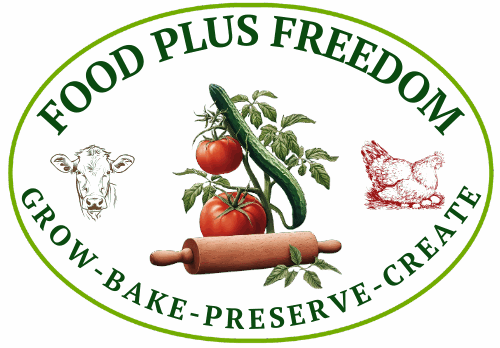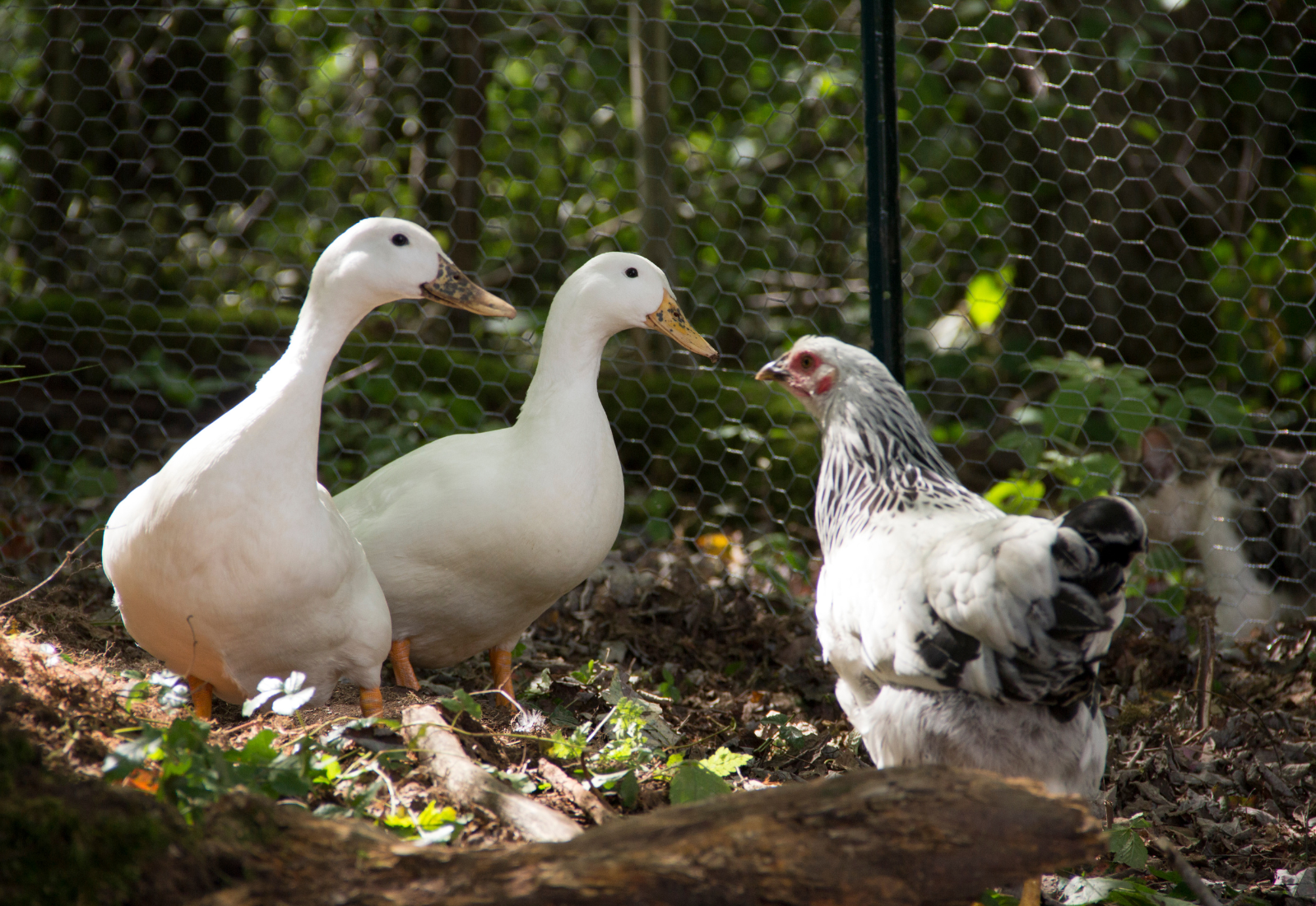(Originally written June 2021, Updated January 2024)
Raising chickens and ducks is the perfect source for meat, eggs, bug and weed control.
Raising Chickens
Chickens take care of bugs on the ground by scratching and gobbling them up. I’ve seen chickens catch small frogs, crawling bugs and other creatures as they walk around the pasture, barn, and yard.
They scratch the ground, which loosens the dirt, allowing them to eat more bugs and weeds. This scratching of the ground increases the fertility of your garden before you plant and after the season is over. Plus,their manure adds nutrients to the soil as well.
Depending on the breed of chickens you choose will depend on the amount of meat and eggs they provide your family. You can raise meat birds, layer birds, or dual purpose birds. Dual purpose birds create both meat and eggs for your family. They normally don’t lay as many eggs as a layer bird. Nor do they grow as fast as a meat bird.
Besides giving your family food and your yard health, chickens give you entertainment. If one chicken finds a treat, it will run off and any chicken that sees it runs after the first chicken. Sometimes the chickens will play tug of war with a worm or chase the same bug until one catches it.
Chickens can and do fly, which means tall fences are necessary to keep them out of your garden and other areas you don’t want destroyed. Not all chicken breeds fly, but they are capable of doing so. Heavier birds tend not to fly, but we had an 8 pound rooster that used to fly to the top of our barn. You can clip the chicken’s wings, however, I never suggest this because then your chicken cannot get away from a predator if it needs to.
Raising Ducks
Ducks give you meat and eggs. They eat bugs, but they do not scratch the ground like a chicken does. Ducks eat bugs in low and high grass and are great tick eaters. They also nab flying bugs as they fly by. Duck’s will sit quietly, watching the bug fly around and then quickly catch it as it flys by. They eat slugs, other crawling bugs, and anything alive in a puddle. Ducks use their bills to scoop up food from puddles and on the ground.
Ducks waddle around making their different quacking noises, looking for food, then lay down to sleep. They love water and must have it. If you have a pond, ducks are an ideal natural addition to your place. No pond? A large baby pool will work great for ducks to wade in.
Yes, ducks are water messy,but an asset to every yard.
Poultry on pasture or in your yard
Both chickens and ducks on pasture or on your lawn help keep weeds and grass down. Yes, chicken and ducks can be raised in the same area. Plus, they both leave behind rich fertilizer all on their own.
You’ll want to move your poultry to different areas of your pasture or lawn to aid in soil health, bug control, and not ruin your yard. They can be free ranged without a fence, providing you have enough room where the chickens and ducks won’t go to the neighbors, into the road, or onto your porch. They will make a mess.
Plus, you want them safe from predators that think chickens and ducks are tasty.
Both chickens and ducks are an excellent source of meat and eggs
Depending on the breed of chickens and ducks you decide on will depend on how long it takes for them to lay eggs.
Most poultry are ready to be butchered between 4 and 6 months old. Females lay eggs around this age as well. And no, you don’t need a rooster or a drake to have chicken or duck eggs.
Our Poultry
In 2022 we stopped raising ducks. They gave us great eggs, tasty meat, and super bug control. Our favorite were the Anacona ducks, but ducks just didn’t fit into our homestead set up. Their eggs were very close to the same taste as our chickens. Plus, the Ancona breed was very docile and not super loud.
Our chickens can convert a pile of compost swiftly into soil. They clean up the yard, the fields, and even the barn. Currently, our chickens roam the yard and barn. We have several varieties of dual purpose chickens we are playing with to create a better meat chicken for the homestead. Plus, layers that we fondly call the barn yard special. Each year we incubate more eggs from these chickens for ourselves, friends, and family.
We will definitely keep you up to date on our newest poultry project, which should start soon.
Feeding
Our poultry gain their nutrients from scratching in the barn, outside during good weather, and sprouted organic seeds and grain. Some call this way of creating food as fodder. Fodder is sprouting wheat, barley, clover, peas, etc. where the animal eats the roots, seed ends, and tops. We’ve grown the grain in fodder trays and in buckets. We prefer the bucket method for ease, and less space needed.
Our poultry’s meat and eggs are higher in nutrients and flavor than we can get from the stores. Plus, I know how they were raised and butchered.
Chicken egg information: According to Mother Earth News, “Meet Real Free- Range Eggs“ hens on pasture have the following nutritional results compared to non-pasture raised hens.
1/3 less cholesterol
1/4 less saturated fat
2/3 more vitamin A
2 times more omega-3 fatty acids
3 times more vitamin E
7 times more beta carotene
The above results are for true pasture raised hens. Read the article for more information.
If you can’t add poultry to your own property, then buy some fresh eggs and meat from a local grower.
Raising poultry doesn’t take tons of room to raise. Plus, many towns allow back yard hens. Check out the zoning rules of your neighborhood.
Poultry will give you meat, eggs, weed and bug control, and entertainment. They are a great livestock to start with on your journey to food freedom.
Grow Food – Eat Local – Gain Freedom

